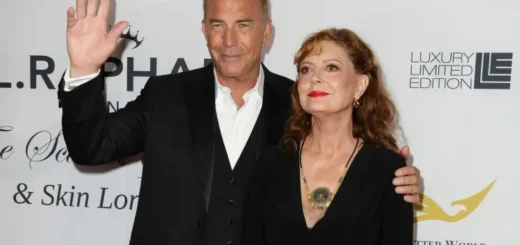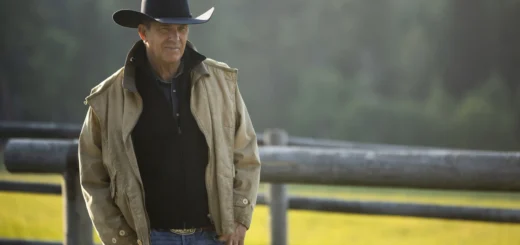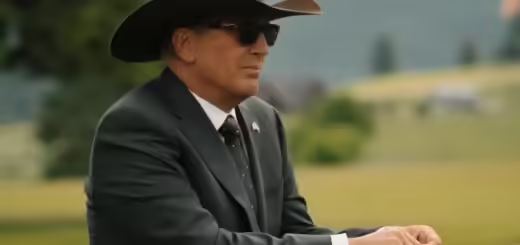“Looking Back: Kevin Costner’s Sci-Fi Flop Was Actually… Just Okay”
30 Years Later, Waterworld Deserves More Than Just a Punchline
In the age of 24/7 entertainment news and obsessive fan speculation, stories of troubled movie productions are no longer whispered rumors—they’re headlines. From Fant4stic and Solo: A Star Wars Story to Justice League and Pixar’s recent Elio, modern audiences are well-acquainted with the term “creative differences” and the chaos that often follows. But back in the 1990s, production nightmares weren’t dissected in real time. That changed with Waterworld.
Released 30 years ago today, Waterworld arrived under a tidal wave of bad press. Though earlier box office bombs like Heaven’s Gate had made headlines, never before had a film’s behind-the-scenes issues been so public. At the time, Waterworld was the most expensive movie ever made, and its bloated budget became an irresistible story for media outlets. The film’s release during the golden age of ‘90s blockbusters—when hits like Jurassic Park and Terminator 2: Judgment Day dominated pop culture—only heightened expectations.
On paper, it should’ve been a slam dunk. Kevin Costner, then at the peak of his popularity, reunited with director Kevin Reynolds after their hit Robin Hood: Prince of Thieves, the second-highest grossing film of 1991. Costner had proven he could lead nearly any genre—historical epic (Dances With Wolves), romance (The Bodyguard), political thriller (JFK), sports fantasy (Field of Dreams). Sci-fi seemed like a natural next step.
Instead, Waterworld became Hollywood’s favorite cautionary tale.
The film is essentially a waterlogged Mad Max. Set in the year 2500, long after melting polar ice caps have submerged the Earth, humanity survives on floating junk cities. Costner plays the Mariner, a mutated loner with gills and webbed feet who forms a reluctant alliance with a woman named Helen (Jeanne Tripplehorn) and her young ward Enola (Tina Majorino) in a quest to find the mythical “Dryland.” All the while, they’re pursued by a gang of jet-ski-riding pirates called the Smokers, led by Dennis Hopper’s scenery-chewing villain, Deacon.
The film’s production was famously chaotic. Storms sank expensive sets, rewrites (including last-minute work by Joss Whedon) disrupted the shoot, and the original score was tossed after composer Mark Isham was let go. Though Waterworld opened at number one and grossed $264 million worldwide, it wasn’t enough to recoup its enormous cost in theaters. Worse, it was released during a crowded summer stacked with better-reviewed competition like Apollo 13, Batman Forever, Pocahontas, and Babe.
Critics and comedians had a field day. Its bizarre details—like the Mariner drinking his own filtered urine, or being called “a turd that won’t flush”—made it an easy punchline. Costner’s usual sincerity, which had served him well in past roles, felt out of place amid the film’s post-apocalyptic absurdity. And while Waterworld had ambition, it lacked the worldbuilding depth of Star Wars or the visual innovation of Jurassic Park. Its PG-13 rating also robbed it of the grit that made The Road Warrior such a cult classic.
Still, the backlash may have been overblown. While flawed, Waterworld isn’t the disaster it was made out to be. The scale is impressive, the action sequences are well-executed, and the film’s commitment to practical effects and real water sets—no easy feat—adds a tactile grandeur that’s missing in many CGI-heavy blockbusters today.
Costner has always stood by the film, calling it “a really exotic, cool movie,” and Reynolds later defended it as well, blaming the studio for overhyping the budget and expectations. “It works quite well compared to some of the other big films,” he argued—and he might have a point.
Despite its reputation, Waterworld found a strange kind of staying power. It inspired a novelization, a comic book, video games, and, most notably, a live-action stunt show at Universal Studios theme parks that’s still running in multiple countries—something few flops can claim.
In retrospect, Waterworld was ahead of its time in some ways and clumsily stuck in the ‘90s blockbuster machine in others. But it’s memorable, ambitious, and weird in a way that few modern studio films dare to be. And in today’s era of brand-driven sameness, that might be worth celebrating.


